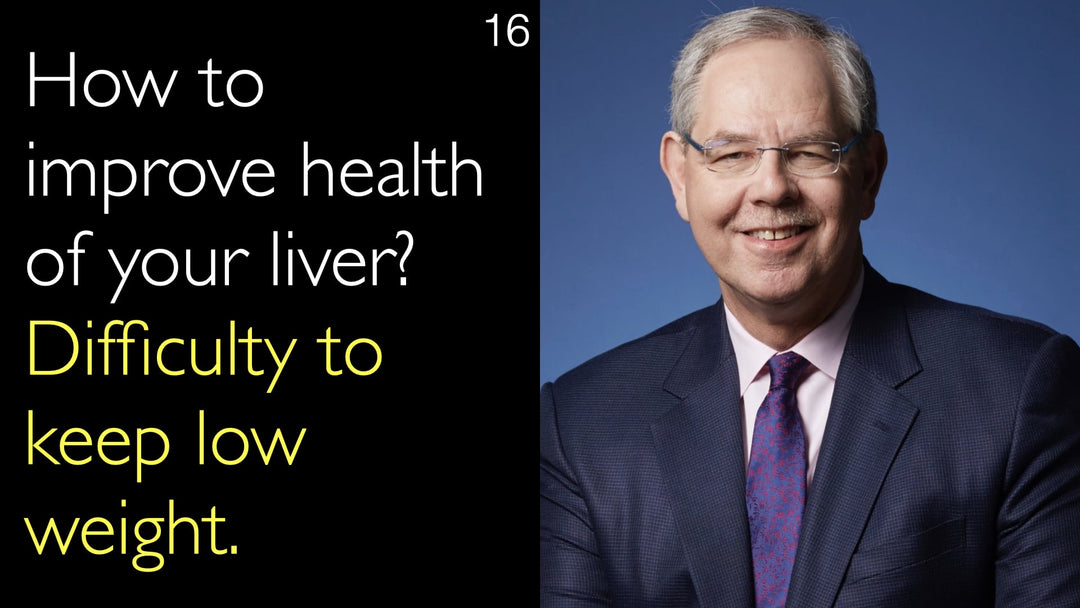Leading expert in vaccine safety and non-specific vaccine effects, Dr. Stephen Evans, MD, explains the complex evidence behind using existing vaccines like BCG and polio to potentially combat COVID-19. He details the challenges of interpreting observational data from low and middle-income countries. Dr. Stephen Evans, MD, emphasizes the critical need for large, randomized controlled trials to confirm any genuine protective effect. He cautions that COVID-19's unique pathology may not respond to vaccines known to help with other respiratory infections. Ultimately, he states there is no strong evidence yet that these vaccines impact COVID-19 outcomes.
Non-Specific Vaccine Effects on COVID-19: BCG, Polio, and MMR
Jump To Section
- Nonspecific Vaccine Effects Explained
- BCG Vaccine and COVID-19
- Observational Study Challenges
- COVID-19 Disease Complexity
- Need for Randomized Trials
- Full Transcript
Nonspecific Vaccine Effects Explained
Dr. Stephen Evans, MD, confirms that vaccines can have effects beyond their intended target disease. These are known as non-specific effects. He cites the BCG vaccine's surprising effectiveness against certain forms of bladder cancer as a prime example of this phenomenon. This broad immune stimulation is the basis for investigating vaccines like BCG, polio, and MMR against COVID-19.
BCG Vaccine and COVID-19
Early data from studies on newborns showed vaccinations with BCG and polio vaccines decreased mortality from unrelated infections like pneumonia and sepsis. Dr. Stephen Evans, MD, notes a critical detail from his own research: these reductions in death rates accrued mostly in the first three weeks after vaccination. This rapid timeline raises questions about the nature of the observed effect. Furthermore, a recent analysis from Israel showed childhood BCG vaccination provided no difference in COVID-19 infection risk among young adults.
Observational Study Challenges
A major hurdle in this research is interpreting observational data. Dr. Stephen Evans, MD, explains that in low and middle-income countries, children who receive specific vaccine combinations are not selected at random. This creates significant potential for selection bias. He states it is very difficult to disentangle a genuine vaccine effect from the inherent differences in the children who do and do not get vaccinated. Because childhood vaccination programs are so effective, the small group that remains unvaccinated is often fundamentally different, making comparisons unreliable.
COVID-19 Disease Complexity
Dr. Stephen Evans, MD, highlights that COVID-19 is a uniquely complex disease. It affects not only the lungs but also the lining of blood vessels and causes strange coagulation effects. The virus has a dramatic effect in the nose, with a sudden loss of taste or smell being a key clinical symptom. A vaccine effective against simpler lung diseases like pneumonia may not be effective against COVID-19 due to its multifaceted pathology. Dr. Stephen Evans, MD, explains this complexity makes the outcome of using other vaccines uncertain.
Need for Randomized Trials
Dr. Evans is clear that large, randomized controlled trials are essential to provide convincing evidence. He believes observational studies are quite difficult to interpret on their own. While he acknowledges that trials of existing vaccines for COVID-19 are underway, he states there is no strong evidence from them yet. Dr. Stephen Evans, MD, concludes that without data from proper trials, the medical community cannot confirm how many of these non-specific effects are genuine.
Full Transcript
Dr. Anton Titov, MD: COVID-19 and non-specific actions of BCG vaccine and poliomyelitis vaccine. Professor Evans, one of your expertise areas is in assessing the non-specific effects of vaccines. You were a WHO Global Advisory Committee on Vaccine Safety member; you worked at the UK Medicines Control Agency and dealt with major vaccine safety concerns.
It's a very hot topic today: the potential ability of BCG vaccine—vaccine against tuberculosis—and poliomyelitis vaccine to stimulate the innate immune system in general, and possibly to lower the infection risks for COVID-19 coronavirus.
The basis of such hopes is data from studies on vaccinations of newborns with BCG vaccine, and also with poliomyelitis vaccine and possibly with MMR vaccine. It showed that vaccination decreased mortality from unrelated respiratory viruses, from pneumonia, and from sepsis, often by substantial percentages.
But most interestingly, in one of your papers, you published that the results in the reduction of the death rates accrued mostly in the first three weeks after the vaccination. These results could have shown that it's a statistical kind of error rather than the really observed effects, because the children could have been selected for or against vaccination.
It's actually very interesting that recent analysis from Israel shows that the influence of childhood BCG vaccination on the risks of COVID-19 coronavirus infection showed no difference in young adults. So that doesn't give us information whether fresh, real vaccination of adults with BCG vaccine or poliomyelitis vaccine could still help reduce risks of COVID-19 infection.
What are your thoughts on the nonspecific effects of BCG vaccine, oral poliomyelitis vaccine, or parenteral poliomyelitis vaccine, and possibly MMR vaccine, to prevent other respiratory infections and possibly to reduce risk of infection with COVID-19?
Dr. Stephen Evans, MD: From what I've said earlier, I'm not a virologist, so I can't give an opinion as a virologist. What I can say is that we do know that vaccines can have effects generally on the body that are more than simply against the virus or other disease that the vaccine is intended to treat.
Such nonspecific effects can occur. One of the fascinating things is that BCG is effective in certain forms of cancer, particularly in relation to bladder cancer. So they can have effects that are surprising to us.
The problem is that when we do observational studies on these, particularly when we're dealing with children in low- and middle-income countries, the sort of children who get particular combinations of vaccines are not getting them at random. It is very difficult to sort out what is a genuine effect from something that is simply a selection bias in those who get the vaccine.
So one of our problems is that if we do not do sufficiently large trials, we cannot sort out how many of these nonspecific effects are genuine and how many are not.
Now when it comes to assessing the effect of BCG vaccine and a range of childhood vaccines on COVID-19, often we have a major problem because the childhood vaccination programs in many countries are extraordinarily effective. Very large numbers—a large proportion of the children—do get those vaccines.
The children who don't get them are really quite different. Trying to disentangle the differences in the children who happen to have the vaccine from those who didn't get the vaccine is very, very difficult.
So I think that observational studies are quite difficult to interpret. But certainly, so far, we have no strong evidence that giving these other vaccines has an effect on COVID-19.
One of the problems, as I said earlier, is that COVID-19 seems to be a very complex disease. It is not only affecting the lungs, but it seems to be affecting the lining of the blood vessels. It's leading to rather strange effects in the coagulation.
We're not sure how easy it's going to be to clear the virus from the nose even with vaccines. We know already that the most sensitive, best test for COVID-19 in terms of clinical symptoms—rather than being able to measure the virus directly—is a sudden loss of taste or smell.
The virus is obviously having a dramatic effect in the nose. Whether we can deal with that with a vaccine, we simply don't know.
A number of the vaccines that have been suggested to have benefits in pneumonia or other simple lung diseases may—even if they were effective in those diseases—may not be effective in COVID-19.
So we have to do trials. I believe there are some trials of the other vaccines that are existing already in COVID-19, but we have no convincing evidence from them yet.







